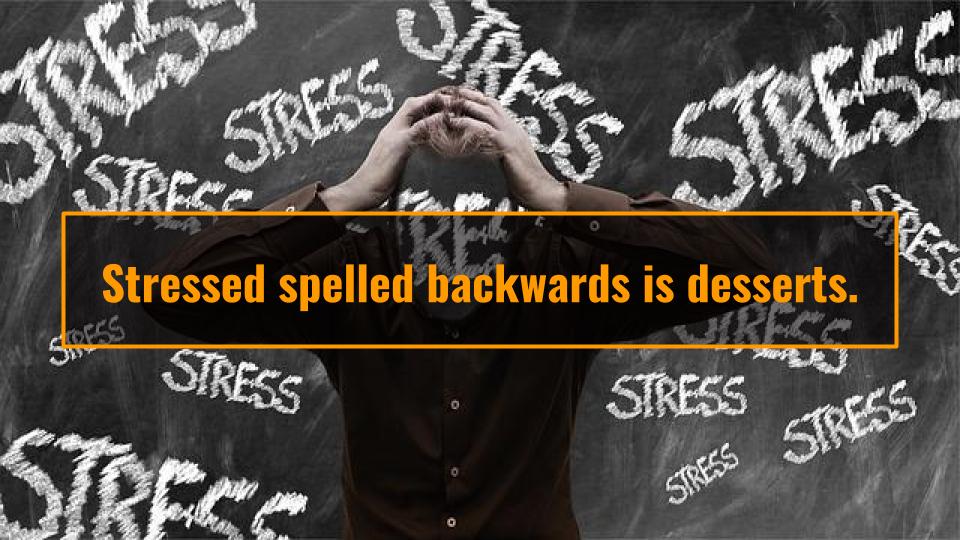|
Stressed spelled backwards is desserts. I'll never forget the first time I can across this meme on social media. Coincidence? Probably, but powerful none-the-less. After all, (thanks to cortisol), who hasn't felt the need to indulge in some sugary, fatty comfort food after a particularly difficult day. For those unfamiliar with cortisol, it is a hormone produced in response to stress and is associated with cravings for high calorie (high fat) and quick energy (high sugar) foods. Once upon a time, such a physiological response helped our ancestors survive, but in a culture of easily accessible, cheap, processed foods, it has the potential to make us fat and maybe even sick. When stressed, many people not only overeat, they eat the wrong foods. If stress eating involved indulging in cucumbers and apples, it wouldn't be a problem. Unfortunately, after an especially hard day we reach for cookies, candy, ice-cream, pasta, chips and other highly processed foods that have been carefully engineered to tempt and please us with the deadly dietary triad known as fat, sugar, and salt. While occasionally treating ourselves to a bowl of ice-cream isn't likely to pack on the pounds, routinely gobbling down the whole gallon of Rocky Road because life happens probably will. Sure, we might feel better for a little while, at least until the ice-cream is gone and the guilt and possibly even self-loathing takes hold, leaving us feeling just as empty as the now-empty container of Rocky Road. Then comes the finale. What the heck. I've already screwed up. I might as well finish off that open bag of chocolate cookies in the pantry while I'm at it. Emotional eating, guilt, binge eating, more guilt. It's a destructive cycle that can spiral out of control. Stress is a fact of life, and learning to deal with stress and our emotions in a positive way is a life skill worth learning, and ice-cream washed down with chocolate chip cookies no matter how good it might feel in the moment is usually not the answer. Luckily, there are better (healthier) ways of dealing with negative emotions. Activities like meditation, exercise, and mindfulness have all been shown to be effective methods for managing stress. In extreme cases, consulting a therapist to address relevant underlying issues might also be warranted. Finally, if you do turn to ice-cream (a bowl or the gallon) to lift your spirits, remember to keep it in perspective. An occasional indulgence (or even overindulgence) is not going to significantly impact your health. So relax, and don't add insult to injury. Put the bag of cookies down. Perspective
0 Comments
Your comment will be posted after it is approved.
Leave a Reply. |
AuthorShaun Taylor Bevins Archives
April 2020
Categories
|

 RSS Feed
RSS Feed